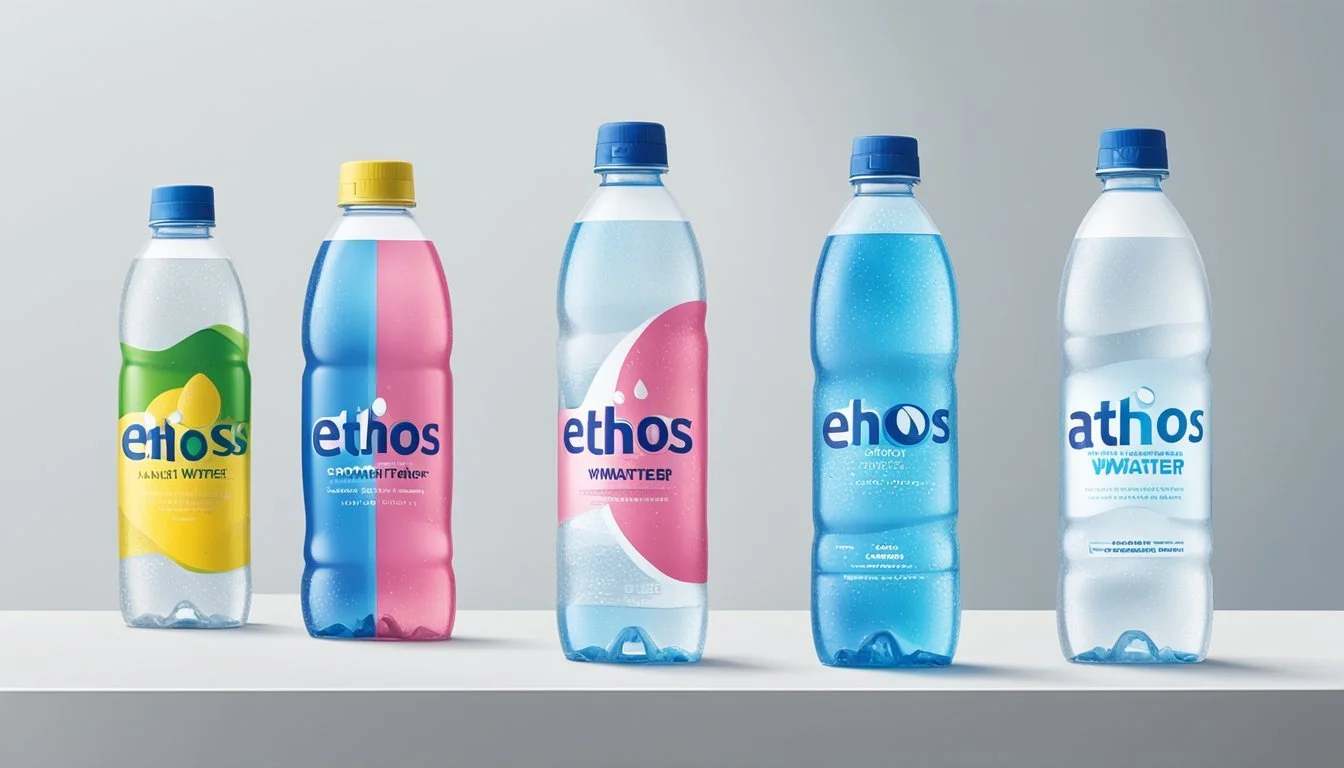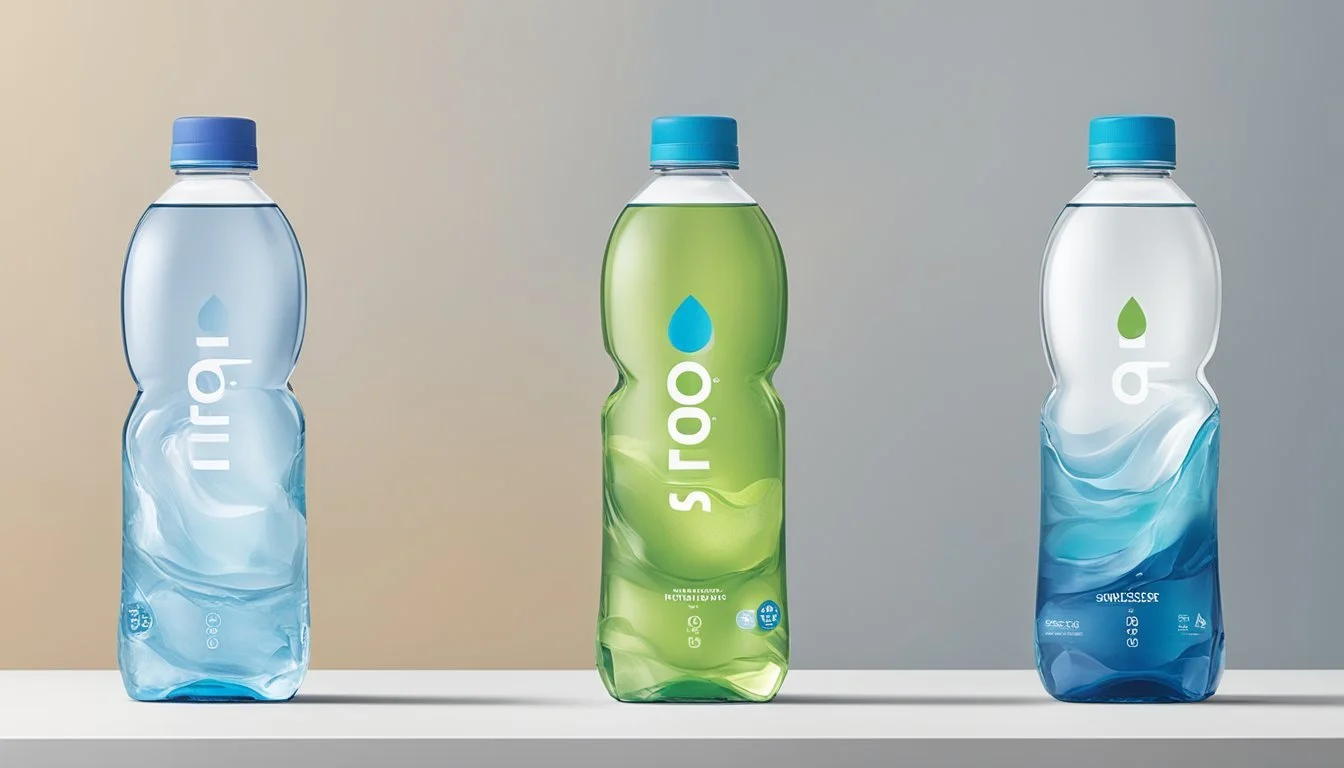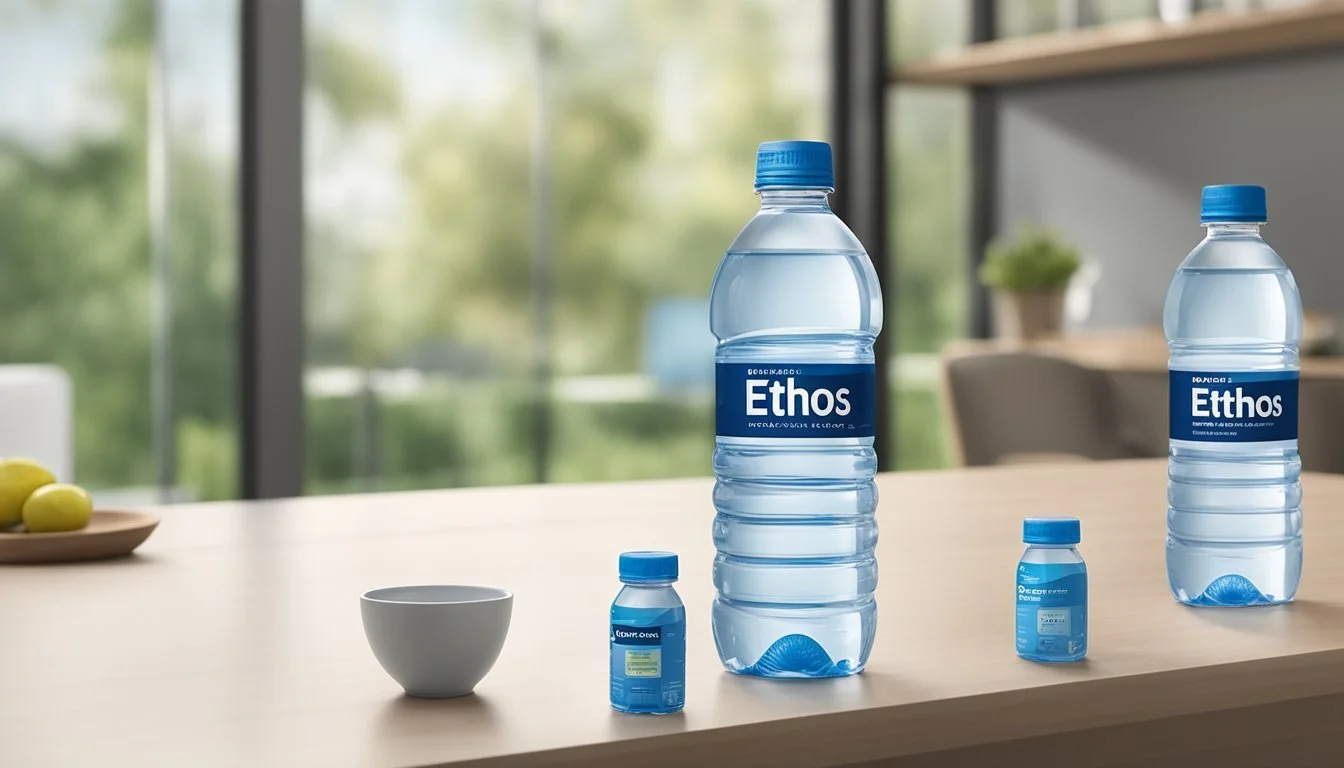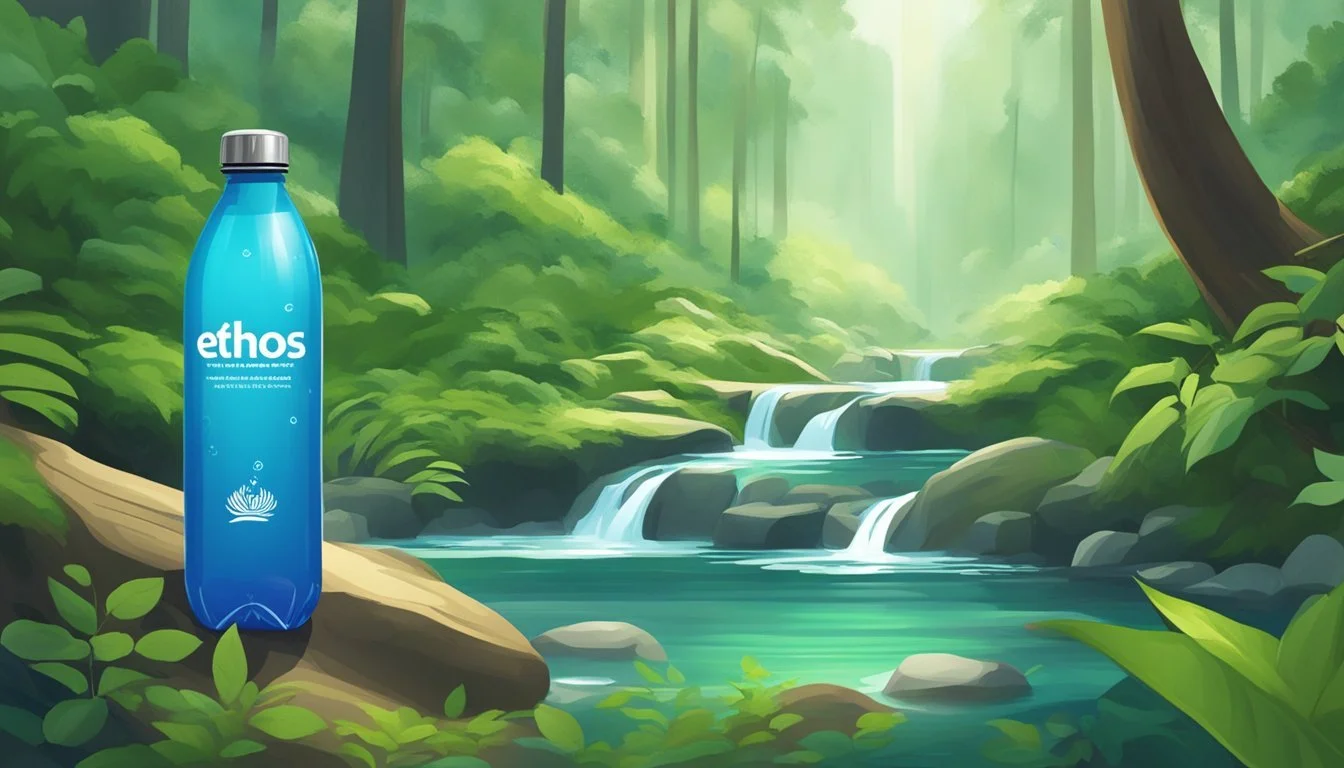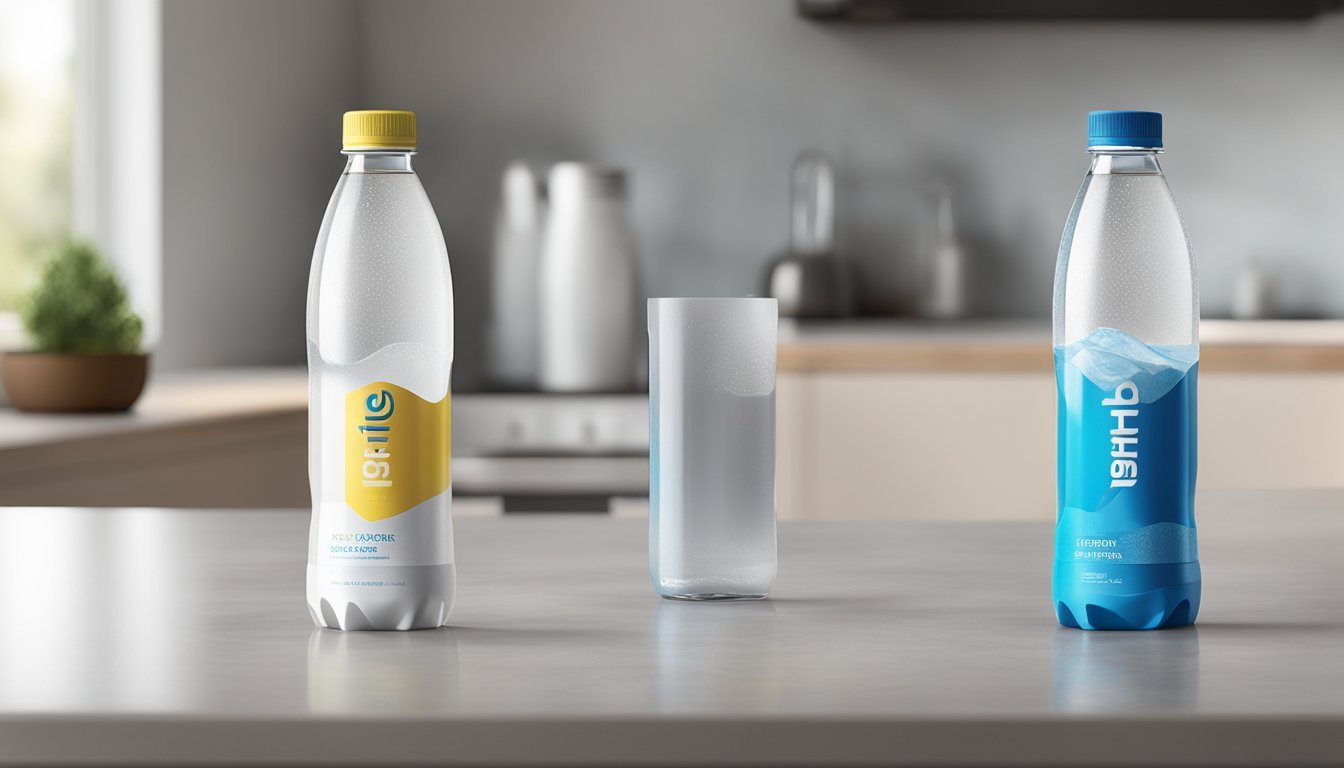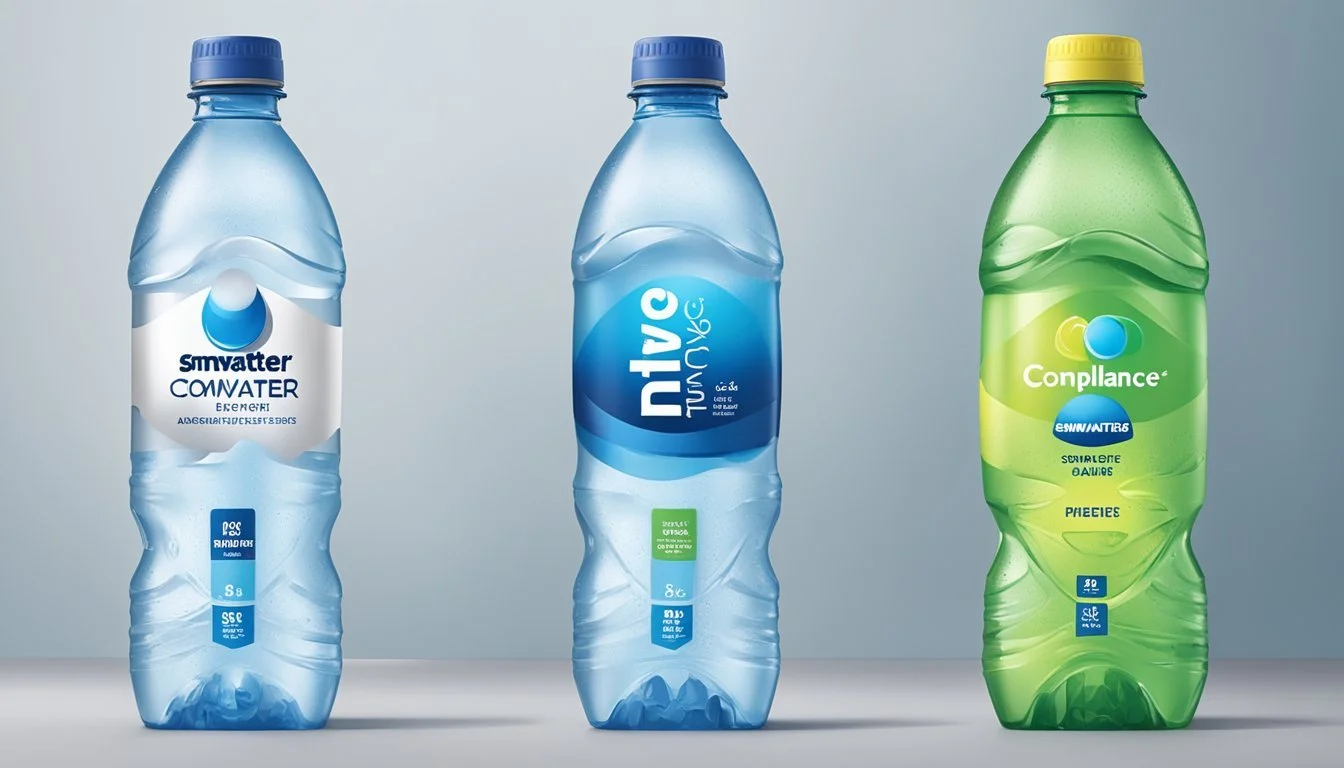Ethos vs. Smartwater
Comprehensive Comparison of Bottled Water Brands
In the world of bottled water, consumers are often faced with a myriad of choices, each promising purity, taste, and optimal hydration. Two brands that often stand out on the shelves are Ethos and Smartwater. Both have staked their claims in the market by touting advanced filtration processes and added benefits, but the question remains: which one is truly the better option?
Ethos Water positions itself as not only a provider of clean and crisp bottled water but also as a socially responsible choice. A portion of their profits is dedicated to humanitarian water programs, offering an ethical incentive to choose their product. On the other hand, Smartwater has gained popularity through its vapor distillation process and the addition of electrolytes, aiming to mimic the taste and hydrating properties of natural spring water.
As both brands vie for consumer preference based on taste and hydration quality, it is important to cut through the marketing noise and look at the facts. By comparing the sources, filtration processes, and overall taste, we can provide a more objective assessment of Ethos and Smartwater, helping consumers make an informed choice in their quest for the best bottled water.
Brand Profiles
In this section, we examine the distinct characteristics that define Ethos Water and Smartwater, two prominent bottled water brands owned by industry giants in the beverage sector.
Understanding Ethos Water
Ethos Water, a brand under the Starbucks umbrella, serves not just to quench thirst but also to make a positive impact on global water access. Starbucks acquired Ethos Water in 2005, incorporating social responsibility into its brand by pledging to contribute a portion of its profits towards water access initiatives. Ethos' bottled water is sourced from various springs and is purified through filtration.
Decoding Smartwater
Smartwater is a product of glacéau, a subsidiary of The Coca-Cola Company, and stands out with its process of vapor-distilled water. Additionally, Smartwater is enhanced with electrolytes, adding a distinct taste and touted benefits for hydration. Coca-Cola has positioned Smartwater as a premium brand in the bottled water market, leveraging advanced purification techniques and branding to differentiate itself.
Nutritional Comparison
When evaluating the nutritional profiles of Ethos and Smartwater, one should consider the mineral content, pH levels, electrolyte blend, and their roles in hydration benefits.
Analyzing Mineral Content
Ethos Water contains a variety of minerals that are beneficial to health, including calcium, magnesium, and potassium. These minerals are naturally occurring in the water, as Ethos Water is typically sourced from springs or wells.
Smartwater, on the other hand, is vapor-distilled, with electrolytes such as calcium chloride, magnesium chloride, and potassium bicarbonate added for taste. While the added minerals may be in smaller quantities compared to natural sources, they still contribute to the overall nutritional profile of the water.
pH Levels and Alkalinity
The pH level of water indicates its acidity or basicity, with 7 being neutral. Ethos Water's pH levels can vary depending on the source, but it is generally close to neutral.
Smartwater is known to have a pH that is slightly alkaline, usually just above neutral. Alkaline water, with pH levels higher than 7, is sometimes preferred for its potential to neutralize acid in the bloodstream, though the health benefits of alkaline water are still being studied.
Examining the Electrolyte Blend
Electrolytes such as sodium, potassium, chloride, calcium, and magnesium are crucial for hydration as they help regulate body fluids. Ethos Water may contain these electrolytes naturally, yet the quantities might be inconsistent due to variance in water sources.
Smartwater adds a specific blend of electrolytes for taste enhancement, often including a mixture of potassium bicarbonate and calcium chloride, which may also aid in replenishment during hydration.
Understanding Hydration Benefits
In terms of hydration, both Ethos and Smartwater are formulated to replenish the body efficiently. The presence of electrolytes in water can facilitate better absorption of fluids, which is essential for maintaining hydration levels in the body.
Ethos Water relies on its natural composition to provide hydration, containing the electrolytes that are normally found in spring or well water. Smartwater's vapor-distillation process, followed by the addition of electrolytes, is designed to not only hydrate but also create a distinct taste profile that some consumers prefer.
Water Quality and Purity
When comparing Ethos Water and Smartwater, it is essential to understand how they measure up in terms of water quality and purity. Factors such as contaminant levels, filtration methods, and the resulting taste play a crucial role in determining which bottled water is better.
Assessment of Contaminants
Water quality is often judged by its content of chemicals, contaminants, and impurities, including heavy metals like lead and arsenic, as well as potential presence of bacteria and viruses. Ethos Water, sourced from public water systems, is subjected to multiple stages of filtration to ensure the removal of unwanted elements. Conversely, Smartwater undergoes a vapor distillation process, mirroring the hydrologic cycle, which is effective at eliminating contaminants. Both brands typically meet or exceed regulations for contaminants such as fluoride, chloride, and aluminum.
Filtration and Purification Methods
Ethos Water employs reverse osmosis and other advanced filtration techniques to create purified water. It focuses on removing impurities while adding minerals for taste. Smartwater, on the other hand, not only distills its water but also reintroduces electrolytes for a clean and crisp taste. This addition is often cited as beneficial for hydration and palatability.
Ethos Water: Reverse Osmosis, Mineral Enhancement
Smartwater: Vapor Distillation, Electrolyte Infusion
Taste and Palatability
The taste of water can be influenced by the presence of minerals and the purification process itself. Users typically describe Ethos Water as having a neutral taste, which suggests a high level of purification and perhaps a minimal level of added minerals for taste. Smartwater is often praised for its palatable taste, which many attribute to the electrolytes added after the distillation process, providing a distinctive, clean, and crisp flavor often preferred by consumers.
Ethos Water: Neutral, Purified Flavor
Smartwater: Crisp, Electrolyte-Enhanced Taste
Environmental and Health Impact
Choosing between Ethos and Smartwater involves considering the environmental and health impacts of each brand. Both use plastic bottles and contain various ingredients that may affect consumers and ecosystems differently.
Plastic Bottle Usage and BPA Exposure
Ethos Water and Smartwater typically come in plastic bottles. The primary concern is the presence of BPA (Bisphenol A), a chemical used in manufacturing polycarbonate plastics. Research suggests that BPA can leach into water, potentially causing health issues. Ethos Water assures their bottles are BPA-free, as does Smartwater. This reduces the risk of BPA exposure which is particularly crucial for children, who are more vulnerable to the harmful effects of such chemicals.
Environmental Footprint of Water Brands
The production and disposal of plastic bottles used by Ethos and Smartwater contribute to their environmental footprints. The extraction and processing of resources required for bottled water can lead to species loss and significant environmental costs. For instance, a study indicated that if a population solely relies on bottled water, it could lead to a 3,500 times higher cost on the environment compared to tap water. Both companies have made commitments to sustainability, with Ethos focusing on charitable contributions and Smartwater exploring more eco-friendly packaging solutions.
Health Concerns Tied to Ingredients
Smartwater is vapor-distilled and has added electrolytes for taste, while Ethos offers natural spring water. The Environmental Working Group (EWG) advises consumers to be aware of the ingredients in bottled water. Some waters contain added minerals and electrolytes. While these are generally safe, consumers should remain informed about the source and quality of the water they consume. Excessive intake of certain minerals can cause health issues, though such instances are rare in regulated bottled waters like Ethos and Smartwater.
Comparison of Source and Water Quality
In the realm of bottled water, the quality and source of the product are critical factors for consumers. While Ethos Water relies on natural sources, Smartwater utilizes a technological approach to purification.
Spring Water vs. Vapor-distilled Water
Ethos Water boasts a connection to spring water, which originates from natural underground sources and can acquire minerals as it flows through the earth. This type of water often comes from mountain springs or other natural groundwater sources, which many believe add beneficial minerals and contribute to a fresher taste.
On the other side, Smartwater is known for its vapor-distilled process. This method involves heating the water to create vapor and then condensing it back into a liquid. It is a technique mimicking the hydrologic cycle and is designed to remove impurities and contaminants to result in water that's nearly pure H2O. The brand also adds electrolytes post-distillation for taste enhancement.
Comparing Natural and Artificial Sources
Natural Water Sources:
Associated with brands like Ethos.
Sourced from mountain spring water or groundwater.
May contain natural minerals.
Artificial Purification Processes:
Used by brands like Smartwater.
Involves vapor distillation and the addition of electrolytes.
Aims to create consistent purity and taste.
The methods each brand employs reflect a different philosophy in water treatment. Ethos Water places value on the inherent characteristics of spring water, while Smartwater emphasizes the purity and consistency achieved through their distillation and enhancement process. Consumers choose based on personal taste preference, trust in natural or artificial purification methods, and the perceived health benefits of each water type.
Market Analysis
In evaluating the competitiveness of Ethos Water and Smartwater, it is essential to consider both consumer behavior and the positioning of these brands in the bottled water market landscape.
Consumer Preferences
Consumers today tend to choose bottled water based on a combination of taste, purity, brand ethos, and perceived health benefits. Ethos Water, primarily leveraging its social enterprise angle, appeals to the socially conscious demographic by donating a portion of its profits to water crisis solutions. Smartwater, on the other hand, targets health-conscious consumers with its emphasis on purity and electrolyte-enhanced formula.
Brand Market Position
The bottled water market features a diversified range of players, each fighting for its share of consumer preference.
Ethos Water: It positions itself as a brand with a cause, thus trying to carve out a segment of the market that prioritizes social responsibility along with hydration.
Smartwater: With its vapor-distilled product and the addition of electrolytes for taste, Smartwater has positioned itself as a premium water choice, which is reflected in its pricing and marketing strategies.
Both brands operate within the wider context of the packaged water industry, which is marked by fierce competition from numerous popular brands that vary greatly in quality, source, and marketing approaches.
Compliance and Standards
When comparing Ethos and Smartwater, understanding the regulatory framework they adhere to is crucial for assessing their quality.
Regulatory Bodies and Bottled Water Standards
Bottled water brands such as Ethos and Smartwater are regulated by the FDA to ensure safety for consumers. The FDA sets stringent standards for bottled water, requiring it to be as safe as tap water, which is regulated by the EPA. These standards encompass various aspects such as contaminant levels, labeling, and safety.
Ethos Water, sourced from private springs, must comply with the FDA's standards, which mandate testing for contaminants like lead, and enforces limits on permissible levels. The FDA's standard for lead in bottled water is set at a maximum of 5 parts per billion.
Smartwater, produced by distillation, ensures its purity and taste through added electrolytes. Compliance with the FDA's regulations involves monitoring for the absence of contaminants and verifying the accuracy of labeling about mineral content.
To summarize, both Ethos and Smartwater must adhere to comprehensive compliance checks under the FDA's watchful eye to ensure they meet the federal standards for bottled water.
Entity Role in Regulation Standard or Requirement FDA Oversees bottled water Water must be as safe as EPA-regulated tap water. Must test for and limit contaminants. EPA Regulates tap water Sets standards for public water systems, which indirectly affect bottled water standards. Ethos Water Bottled water brand Must comply with FDA standards including contaminant levels such as lead. Smartwater Bottled water brand Must adhere to FDA’s standards, particularly in purity and accurate labeling.
Consumer Guide
When selecting bottled water like Ethos and Smartwater, consumers must consider factors such as their lifestyle, diet, water pH balance, and the convenience offered by each brand. Moreover, understanding storage practices and knowing where these brands rank in terms of quality can guide buyers to make an informed choice.
Choosing Water for Lifestyle and Diet
Consumers should assess bottled waters based on their lifestyle and dietary requirements. Ethos Water, for instance, aligns with socially conscious lifestyles, as it supports humanitarian water programs. In terms of diet, individuals seeking water with more minerals might lean towards Smartwater, which is enhanced with electrolytes. Those monitoring their dietary pH may prefer waters that boast a balanced pH level; Smartwater claims to be vapor-distilled with a pH balance, potentially making it an attractive option for some.
Best Practices for Consumption and Storage
To maximize the quality of bottled water, individuals should adhere to proper consumption and storage guidelines. They should consume water by its expiration date and store it in a cool, dark place to preserve its taste and quality. Furthermore, they must consider the convenience aspect—for busy lifestyles, water bottles that fit easily into daily routines and are easily recyclable might rank higher on the preference list.
Ratings: Worst to Best Bottled Waters
In the landscape of bottled waters, ratings often reflect public opinion on overall quality, which encompasses taste, source authenticity, and brand reputation. For instance, ratings might categorize budget-friendly options with lower scores, while brands with reputed sources and beneficial minerals rank higher. According to various consumer ratings,
Ethos Water generally receives positive feedback for its charitable endeavors and quality.
Smartwater often comes out on top for its taste and added electrolytes, which appeal to health-conscious consumers.
In determining the best bottled water, individuals should reference these ratings while considering their personal needs and preferences.

